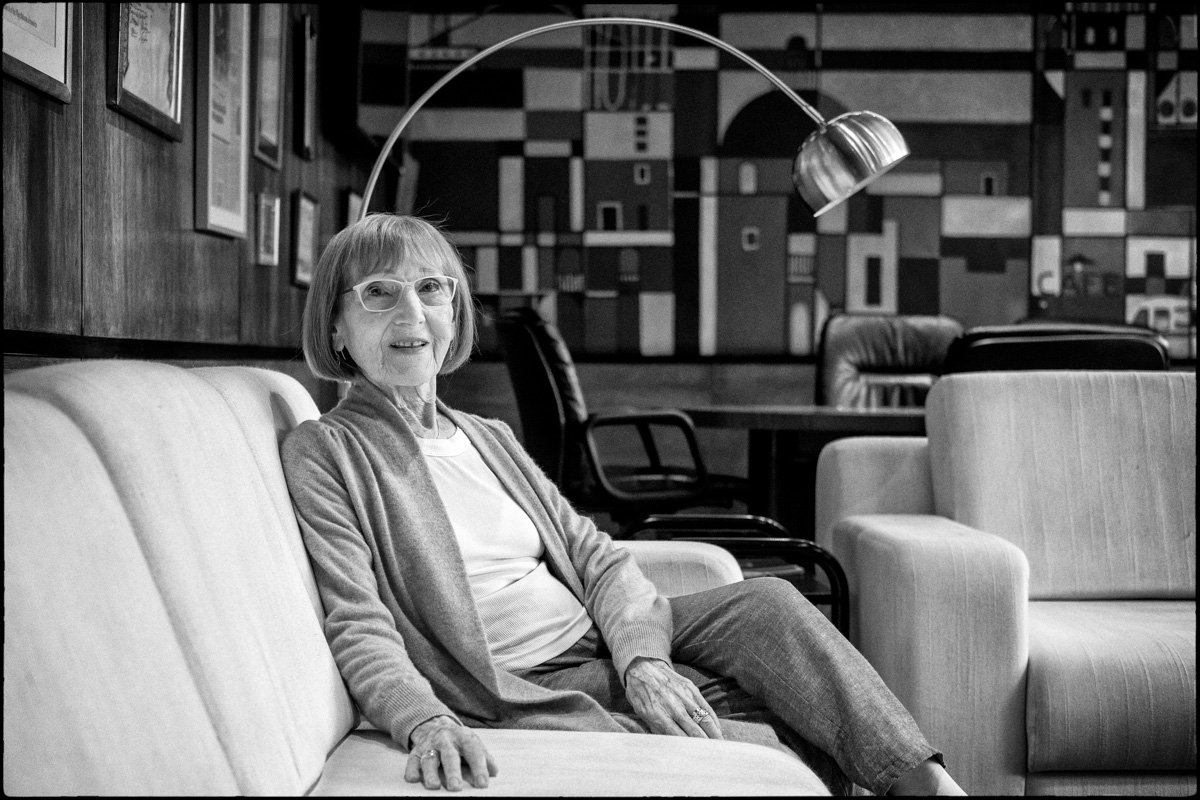She was born in Liège, Belgium. Charlotte, her brother and parents survived the Shoah in hiding in France, traveling through much of the country, seeking refuge and hiding with her brother for more than a year in a closet. In her exile she saw many trains pass by without knowing, at first, what the final destination of the "passengers" was, which in reality was to be exterminated.
Resident in Uruguay since 1952. She is General Director of the ORT Uruguay University, where, among other activities, she is involved in the dissemination of the Shoah theme in the form of courses, films and books.
Central protagonist of the book "La niña que miraba los trenes partir", by Eng. Ruperto Long, which was awarded the Golden Book Award 2016 in the category Fiction of National Author and translated into several languages, recounts her experience during World War II.
Married to Dr. Joseph Grünberg; she has one son and three grandchildren.
Testimony:
How does a child adapt to the sudden loss of all his referents?
The agony of fear and permanent humiliation as the only stable element. Stalked at all times by Gestapo raids, local collaborators and denunciations. For three years we traveled through France trying to escape the "final solution". Part of my family did not make it.
"I use my wounds to try to help others."
_________________________
Charlotte de Grünberg / Uruguay 2020
Nació en Lieja, Bélgica. Charlotte, su hermano y sus padres sobrevivieron a la Shoá en la clandestinidad en Francia, recorriendo gran parte del país, buscando refugio y escondiéndose junto con su hermano por más de un año en un ropero. En su exilio vio muchos trenes pasar sin saber, al principio, cuál era el destino final de los "pasajeros", que en realidad era ser exterminados.
Residente en Uruguay desde 1952. Es Directora General de la Universidad ORT Uruguay, donde entre otras actividades se ocupa de la divulgación del tema Shoá en forma de cursos, películas y libros.
Protagonista central del libro "La niña que miraba los trenes partir", del Ing. Ruperto Long, que fue galardonado con el Premio Libro de Oro 2016 en la categoría Ficción de Autor Nacional y traducido a varios idiomas, relata su experiencia durante la Segunda Guerra Mundial.
Casada con el Dr. José Grünberg; tiene un hijo y tres nietos.
Testimonio:
¿Cómo se adapta un niño a la pérdida repentina de todos sus referentes?
La agonía del miedo y la humillación permanente como único elemento estable. Acechados en todo momento por razias de la Gestapo, los colaboracionistas locales y las denuncias. Durante tres años recorrimos Francia buscando escapar de la "solución final". Parte de mi familia no lo logró.
"Utilizo mis heridas para intentar ayudar a otros"

